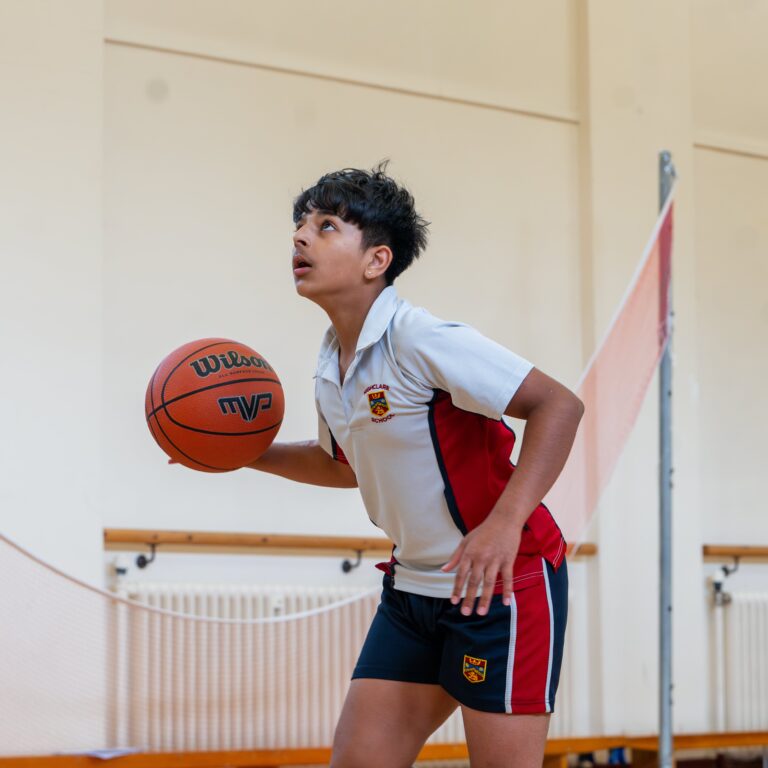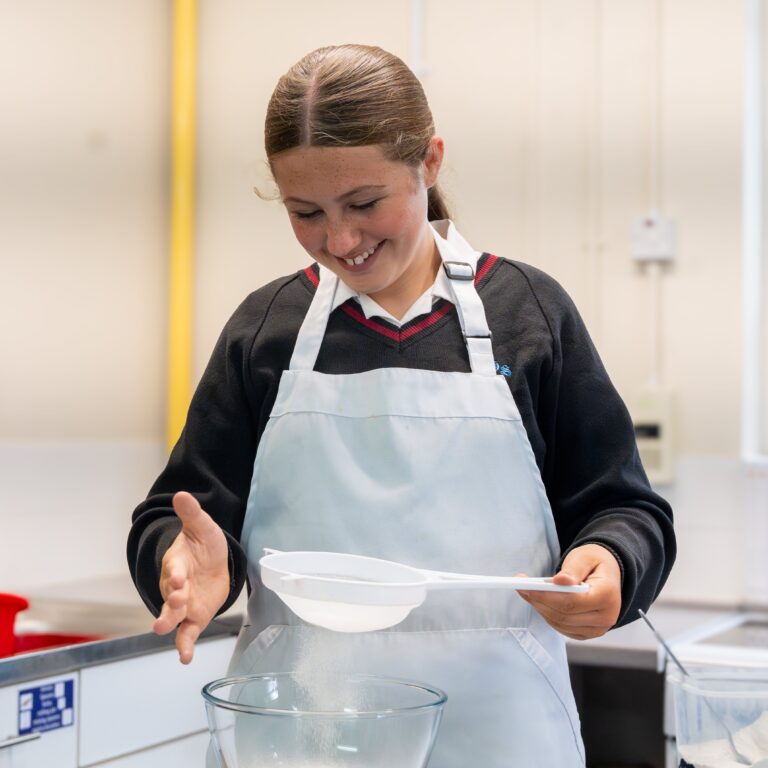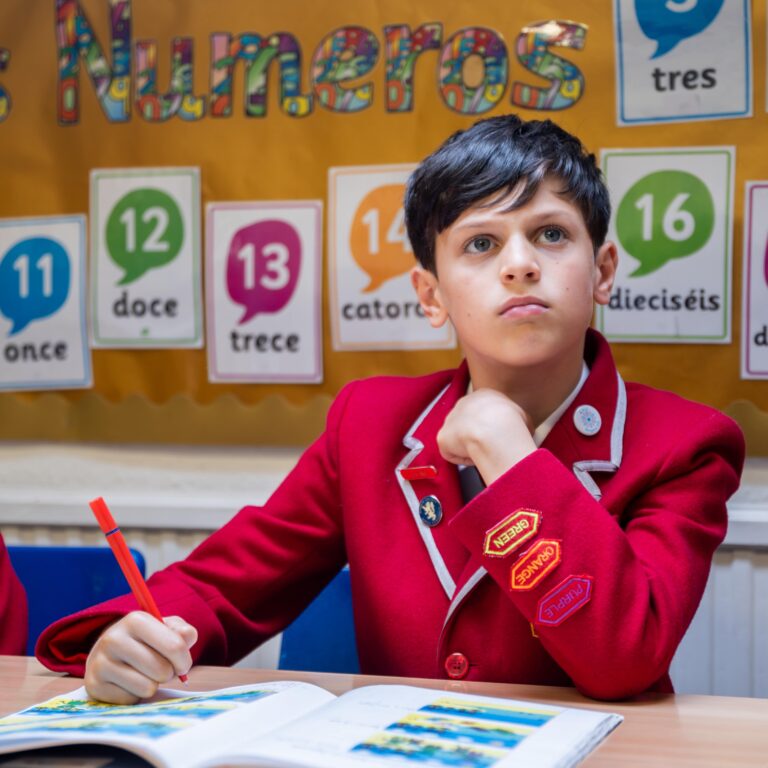At Highclare Senior School, the academic curriculum is designed to prepare pupils for life as independent learners and to give them opportunities to achieve individual excellence.
All pupils follow a broad, balanced curriculum, which is delivered by well-qualified specialist teachers.
Key Stage 3 (Years 7–9)
During Years 7, 8 and 9 (Upper Third, Lower Fourth and Upper Fourth), pupils follow a wide-ranging curriculum which includes the following subjects:
| Subject | Subject |
|---|---|
| Art | Geography |
| Design Technology | Food and Nutrition |
| Drama | History |
| English | ICT and Computing |
| French | Life Skills and Values |
| Spanish | Mathematics |
| Music | Physical Education |
| Personal, Social, Citizenship and Health Education (PSCHE) | Science (Biology, Chemistry and Physics from Lower Fourth) |
| Religious Studies |
In addition, all pupils in KS3 take part in the Highclare Super Curriculum, a varied enrichment programme designed to broaden their experiences beyond the classroom.
Curriculum Plans
For more information about the Key Stage 3 curriculum, please refer to the documents below:
Key Stage 4 (Years 10 & 11) – The GCSE Years
At Key Stage 4, all pupils study the core subjects of:
| Subject | Subject |
|---|---|
| English Language | Science (either Separate Sciences: Biology, Chemistry and Physics, or Combined Science) |
| English Literature | PSCHE * |
| Mathematics | Recreational Physical Education* |
*these are non exam subjects
Pupils can then choose up to three additional subjects from a wide range of options, enabling them to pursue areas of personal interest and strength:
| Subject | Subject |
|---|---|
| Art | History |
| Business Studies | IMedia |
| Computer Science | Music |
| Design Technology | PE BTEC |
| Drama | Religious Studies |
| Food Preparation and Nutrition | French |
| Geography | Spanish |
A typical pupil studies eight or nine GCSEs, depending on their science pathway.
Selecting GCSE Subjects
Choosing GCSE options is an important stage in each pupil’s educational journey. We encourage pupils to make informed decisions based on their interests, strengths, and future aspirations.
When considering your options, reflect on the following:
About Yourself
-
Which subjects do I enjoy most?
-
What skills do I have?
-
How well do I organise my studies and work?
-
Do I prefer working independently or collaboratively?
-
What type of assessment suits me best?
Gathering Information
-
Review previous reports and discuss your progress with parents and teachers.
-
Talk to subject teachers, tutors, and older pupils about their experiences.
-
Explore course information booklets and examination board websites.
Future Considerations
-
Research possible careers and university pathways.
-
Visit careers websites and speak with the school’s careers staff.
Avoid Common Pitfalls
-
Choosing a subject because of the teacher or your friends.
-
Making decisions without researching each subject fully.
-
Failing to consider how subject choices may influence future opportunities.
Please also use Morrisby to learn more about GCSE courses and careers.
GCSE Options Booklet
For detailed information about each subject and the GCSE options process, please refer to the following document:
GCSE Options 2026
For further guidance on GCSE curriculum choices, please contact:
Mr Coles, Deputy Head (Academic), Senior School
m.coles@highclareschool.co.uk





